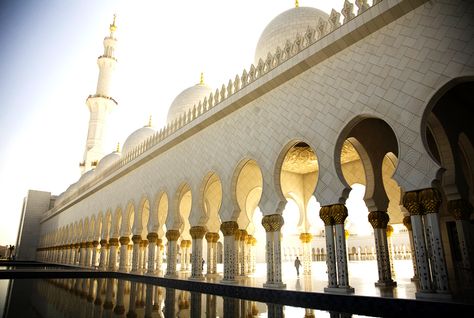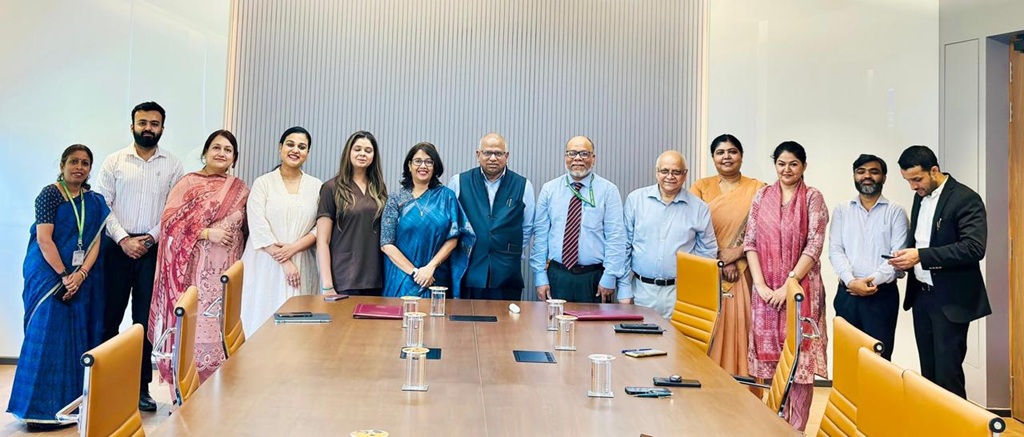By Carla Power
The champions of Islamic finance—banking and investing based on the Koran—believe that if Islamic principles had been applied to Wall Street, the global economic crisis never would have happened. The handful of men who decide which mortgages, car loans, and credit cards are spiritually sound are cashing in. But critics smell a con.
Amid the worst economic crisis in nearly a century, Yusuf Talal DeLorenzo sells peace of mind. A Muslim convert who is the product of both a Massachusetts prep school and a Karachi madrasa, DeLorenzo issues pronouncements on the spiritual soundness of modern finance for the world’s Muslims.
Islamic law, or sharia, forbids pious Muslims from paying interest or investing in morally questionable companies. So, DeLorenzo serves as a well-paid counsel to the international hedge-fund managers, bankers, and asset managers who are determined to invest in line with the Koran’s principles. With his rare ability to move easily between medieval Islamic texts and 21st-century financial instruments, DeLorenzo has emerged as one of the world’s chief gatekeepers for the fast-growing market in Islamic finance.
He’s a member of an elite group of fewer than 20 top-tier experts. Sheikh Nizam Yaquby issues fatwas for blue-chip institutions such as Dow Jones and HSBC from the back office of an electronics shop in a Bahraini bazaar. “There is no sin in the Koran—not even drinking, not even fornicating, not even homosexuality—which could be as abhorrent and serious as dealing in riba [interest],” he has said. Pakistan-born Muhammad Taqi Usmani, with the trademark cap of a religious scholar and his beard stained henna red, bears little resemblance to the Wall Street bigwigs who eagerly seek his advice. He is the chair of the powerful sharia board of the Accounting and Auditing Organization for Islamic Financial Institutions (AAOIFI), a Bahrain-based regulatory institution that sets standards for the global industry. DeLorenzo and Yaquby sit on the board, too, just as they both sit on the sharia board of the Dow Jones Islamic Market Index, which screens companies for Muslim investors to make sure they don’t peddle in the defense or entertainment industries or are in any way connected to forbidden activities such as pornography, gambling, and pork production.
That the same few names appear again and again on sharia boards—Yaquby sits on more than 60, according to the Islamic Finance Information Service—reflects the unlikely name-brand status these Islamic scholars have attained in the world of modern finance. “It’s only natural that if it’s a big bank going out with a big product, they want to make a big splash,” DeLorenzo says. “I would rather have Tiger Woods endorse my product than some no-name golfer.”
Until the credit crunch of 2008, Islamic finance was a fast-growing, if still relatively obscure, new specialty of international finance. But after Wall Street’s implosion, Islamic finance’s champions have begun to promote the sector as a safe haven from the ills of the global economy. At a Doha conference in late 2008, Sheikh Yusuf al-Qaradawi, arguably the world’s most influential Islamic scholar, asserted that “the collapse of capitalism . . . shows that the Islamic economic philosophy is holding up.” DeLorenzo is even more sweeping in his claims. “If you had sukuk [or interest-free bonds based on actual assets], the subprime crisis never would have happened,” he says.
But how truly Islamic is the Islamic finance these men promote? To their critics, many are nothing more than rent-a-sheikhs, willing to give the spiritual nod to just about any financial product for the right price. Within their own ranks, the top sheikhs debate vigorously over which new products and transactions are permissible—and which have been unjustly allowed. One recent study from the AAOIFI concluded that 85 percent of bonds marketed as sharia-compliant were illegitimate. And the fees many of these scholars take in—at times, six figures for a single decision—only add to such critiques.
“There’s a whole industry now—supported by a show of religious authority provided by Islamic scholars—with banks promoting conventional products as Islamic,” says Mahmoud El-Gamal, a professor at Rice University and author of Islamic Finance: Law, Economics, and Practice. “They’re preying on the religiously insecure.” And as the financial crisis continues to unwind, there are a lot of insecure people out there.
THE BUSINESS OF ALLAH Whether scholars like DeLorenzo and Yaquby offer merely pious packaging or a genuine reconciliation of sharia and modernity, demand is growing enormously for their services. What began several decades ago with a few Middle Eastern banks trying to circumvent the Koran’s ban on interest has become one of the world’s fastest-growing financial sectors. And it has been propelled by record oil revenues in the Gulf, deepening Islamic sentiment in countries from Pakistan and Egypt to Britain and France, and the flight of Arab capital out of the United States after September 11.
Islamic finance accounts for just 1 percent of the global market, but the industry’s yearly value is estimated at about $500 billion, with annual growth of 15 percent. In five years, it could hit $4 trillion, according to a 2008 report from Moody’s Investors Service. And its potential could be even greater.
Islam is the world’s fastest-growing religion, with 1.3 billion adherents, many of whom are young and new to personal finance. Standard & Poor’s estimates that in the Muslim countries of Asia and the Gulf, 1 in 5 banking customers would opt for Islamic financial products over conventional ones if given the opportunity. By 2012, nearly a third of all business deals in the Gulf will be done through Islamic finance, according to the Middle East Economic Digest. Add a booming Muslim middle class and non-Muslims eager to profit, and it is easy to understand why some of the world’s biggest banks are spending millions to enter the market. The 300 dedicated Islamic banks and funds worldwide, operating in 75 countries, are beginning to face stiff competition from top-tier global firms such as Deutsche Bank, HSBC, and Citibank.
This competition is fueling even grander aspirations among scholars such as DeLorenzo. Islamic finance, he says, is not just a way for Muslims to turn an honest profit; it is the vehicle that will make Islamic law relevant for the 21st century, a far cry from debates over “marrying and burying” that dominated his own madrasa education in the 1970s.
“Islamic finance scholars say that what’s happening in the conventional world of finance is at the heart of the difference between Islamic and ordinary finance,” says Davide Barzilai, a partner specializing in Islamic finance at the international law firm Norton Rose. Muslim investors haven’t suffered from falling bank stocks, Islamic scholars point out, because their faith forbids investment in financial institutions. Since the Koran bans gambling, the related practice of risk is forbidden. So too is the short-selling of stocks (on the grounds that you can’t sell what you don’t own) and the sale of debt. Indeed, the practice of repackaging and trading debt, as well as credit-default swaps, both so central to the financial crisis, never could have happened under Islamic law.
MARKET FUNDAMENTALISM Sharia scholars such as DeLorenzo see Islamic finance as the path to a distinctly spiritual end. Like political Islam, Islamic finance began as a search for authenticity and independence from the West. Its origins lie in the postcolonial Islamic identity that emerged in the 1950s and 1960s, when Muslim economists returned to the Koran to develop what they called Islamic economics.
The central concept is justice. Transactions that could be unjust for either the borrower or the lender are discouraged. For any financial undertaking, risks must be shared. To get around the Koran’s ban on interest, Islamic banking has relied heavily on what is called murabaha: a loan or sale in which a markup is added to the transaction’s cost. So when a Muslim borrower goes to a bank to buy a car or house, he agrees to a contract in which he pays back the cost of the item, plus a certain amount of profit. The bank is technically a partner, rather than just a financier. These methods are believed to meet the spirit of the law because they avoid the exploitation of the borrower.
Using this model, Islamic banks have created scores of financial products for Muslims to avoid Western-style interest or risk. The result is a parallel system of Islamic offerings that mirror those available from conventional banks: Islamic mortgages, Islamic car loans, Islamic credit cards, Islamic insurance. An ijara, or Islamic lease, allows a bank to buy a car or a house for a customer and then earn a profit by renting it to them. An Islamic investor who wants to start a business can go to a bank and embark on a mudharaba, or partnership, in which the bank supplies the money and the customer brings the business skills. Profits are shared in a predetermined ratio; losses are borne by the bank. For insurance, companies offer policies in which a group of subscribers creates a pool of funds that can then be invested and drawn on in cases of legitimate claims. Unclaimed profits are then distributed among policyholders.
To many, including some Islamic scholars, such offerings look a lot like conventional finance in disguise. But for many devout Muslims, the fact that they are technically avoiding interest makes such practices acceptable. Under sharia, money must be exchanged for a real good or service. “Money itself creates no value,” observes Mohamed Elgari, a top sharia scholar. “[Under Islamic law], it is only a medium of exchange.” It’s a nimble balancing act, and for those banks willing to attempt it, there are plenty of willing customers.
In Britain alone, the value of the Islamic mortgage market has topped $900 million, up 50 percent between 2006 and 2007. The global Islamic insurance market is growing 25 percent annually and is slated to reach $14 billion a year by 2010, according to HSBC. And non-Muslims are increasingly keen takers. Half of HSBC’s Islamic mortgages in Malaysia went to non-Muslims the first year the company offered them. Saturna Capital, a Washington-based investment firm, estimates that 60 percent of customers for its sharia-compliant mutual funds aren’t Muslim. All of which raises the ironic possibility that Islamic finance, in its quest to develop a more spiritually pure alternative to modern materialism for the world’s Muslims, may have ended up creating a large and attractive market for Western investors.
PIETY FOR A PRICEBut not everyone is convinced. Take the claim of Islamic finance as a safe haven from the global economic crisis. “Now is a golden opportunity for Islamic finance to provide an alternative model . . . just what the world needs right now,” Islamic finance conference organizer Swati Taneja recently told Emirates Business 24/7. “There has never been a more interesting time for cautious investors burned in the conventional credit crunch to begin looking at what the Islamic markets have to offer.” But even someone as bullish as Taneja concedes that a globalized market means Islamic investments are exposed along with mainstream ones. According to Standard & Poor’s, sharia-compliant stocks lost 23 percent of their value during the first three quarters of 2008, compared with a 25 percent fall for non-sharia-sanctioned stocks. And Islamic finance, just like conventional finance, is vulnerable to sloppy vetting of customers’ creditworthiness.
Potential pitfalls for Islamic finance, then, are the same as those for conventional finance: greed and lax regulation. So, at what point do the scholars’ fatwas only serve to perpetuate the industry that feeds them, thereby consolidating their own power? “They’re not going to kill the goose that lays the golden egg,” El-Gamal says. “[By issuing bans on certain financial products], they want to continue to build up the religious insecurity of people who are afraid to use conventional [finance].” And banks that benefit are happy to see the current system maintained. Very few scholars dominate the field, says Tarek El Diwany, an analyst at Zest Advisory, a London-based Islamic financial consultancy, because “there’s a shortage of scholars who will give the judgments that the banks are looking for.”
The industry’s chief critics see in Islamic finance the same rhetorical spin as Islamist politics. “The whole idea of giving [finance] a religious identity is just a form of identity politics,” says El-Gamal. “The claim that Islam has the perfect solution is questionable in economics, just as in politics.” Still others see outright deception. Mohammad Akram Nadwi, a prominent Britain-based scholar of Islamic jurisprudence, advises his students against taking out Islamic mortgages, because he thinks their structure is merely interest-bearing debt in disguise. “At least conventional mortgages are honest,” he shrugs.
At industry conferences, there have been mutterings about too few sheikhs serving on too many boards, and even advising direct competitors. Malaysia, which arguably has the world’s best-developed legal framework for sharia finance, banned scholars in 2005 from serving on more than one bank board at a time. And in an effort to groom more young sheikhs to enter the field, Malaysia’s central bank and the Saudi-based Islamic Development Bank recently created a $53 million endowment to support sharia scholarship. But, in an industry that respects longevity and seniority, especially among Wall Street investors unfamiliar with the nuances of madrasa education, breaking in can be tough.
A larger issue is whether Islam and the modern economy can be reconciled at all. Is it enough to create banking products that mimic those of traditional finance but also meet the letter of Islamic law? Or must the goals of the financial system itself be reworked fundamentally? The question, in short, is whether a growing Islamic financial sector can really bring about the material and spiritual justice that its advocates claim it will—or whether it will enrich a select few. Such a debate cuts to the heart of whether Koranic admonitions must be strictly applied or can be subject to greater interpretation. That the Islamic financial sector has largely been designed by a small group of men paid handsomely for their services has led some observers to declare that much of what passes for Islamic finance today fails to meet the intentions of sharia.
For every observer who thinks that sharia scholars have become too reckless in their judgments, there are many more who believe that a broad rethink of the financial system should carry the day. “To date, most Islamic financiers have been looking at . . .examples of financing in Islamic history and figuring out how to apply them today,” says El Diwany, the London-based Islamic financial consultant. “That’s a very narrow way of doing things. There’s potentially much more innovation we could be doing—and potentially, much less.” It may not win Islam more converts, but it could provide an entirely new generation of customers.
Note :Carla Power is a London-based writer on Islamic and social issues.






0 Comments